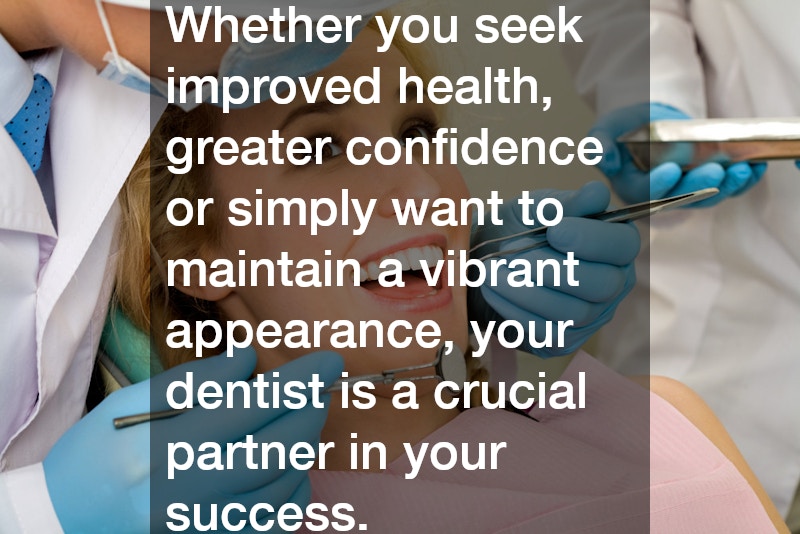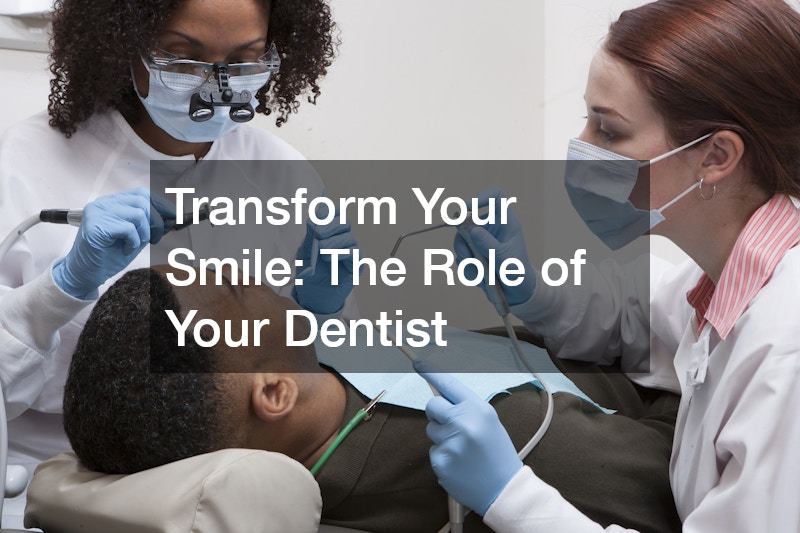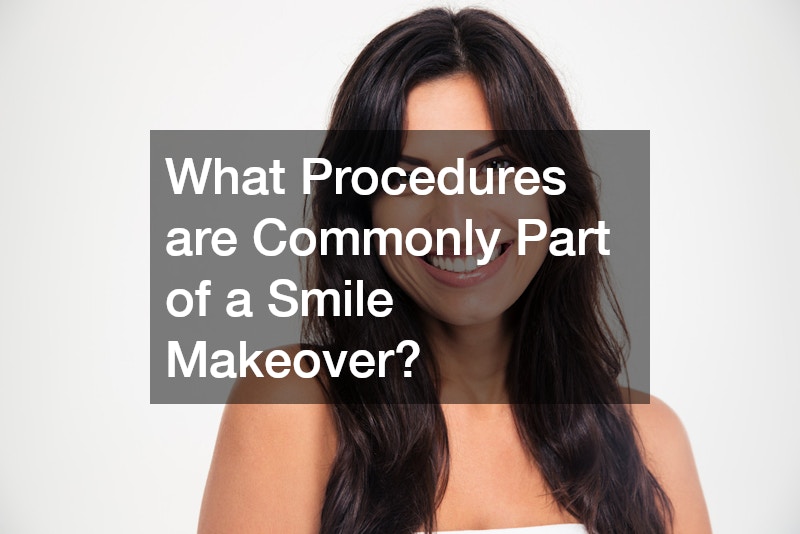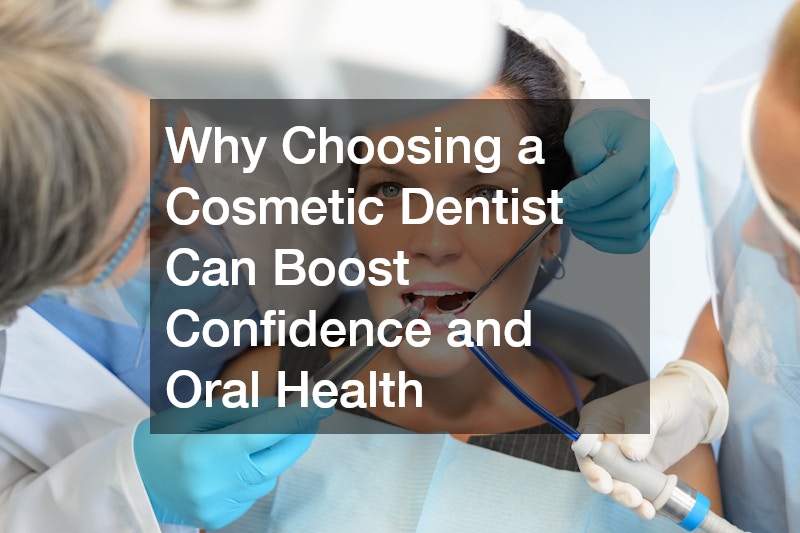Transform Your Smile The Role of Your Dentist
A confident smile can be life-changing, influencing everything from social interactions to professional opportunities. Yet, achieving and maintaining a beautiful, healthy smile involves more than just daily brushing. Your dentist plays a pivotal role in helping you achieve optimal oral health and aesthetic improvement. Through preventative care, cosmetic solutions and ongoing guidance, dental professionals offer far-reaching benefits that extend well beyond your teeth.
Preventative Care & Early Intervention
One of the most crucial roles your dentist performs is preventative care. Regular dental check-ups are designed to identify problems in their earliest stages, often before you feel any pain or notice visible symptoms. This includes identifying tooth decay, gum disease, oral cancer and other potential issues that could compromise your health if left untreated. Preventative care also involves professional cleaning, which removes plaque and tartar buildup that even diligent home care can miss.
By attending routine appointments, patients reduce their risk of developing complex dental issues that require invasive procedures. For example, a small cavity caught early may only need a filling, whereas if ignored, it could lead to root canal therapy or tooth extraction. Your dentist will assess your individual oral health and tailor a care plan that keeps problems at bay before they escalate.
Personalised Advice & Lifestyle Guidance
Dentists do more than clean teeth and fill cavities. They offer personalised advice based on your lifestyle, diet and medical history. Whether it’s guidance on brushing techniques, flossing habits, or suggestions for dental products, your dentist ensures that your at-home care is as effective as possible. For individuals with specific conditions like diabetes, pregnancy-related oral changes or dry mouth caused by medication, these insights become even more essential.
Dietary choices also play a significant role in dental health. Excessive sugar intake, acidic foods and drinks, and even certain snacks can increase the risk of decay and enamel erosion. Your dentist can identify dietary patterns that may be undermining your oral health and provide strategies to reduce risk while maintaining enjoyment of food.
Cosmetic Dentistry for Aesthetic Confidence
For many Australians, transforming their smile is not only about health but also aesthetics. Cosmetic dentistry has advanced significantly, offering treatments that are both effective and minimally invasive. From teeth whitening and veneers to bonding and clear aligners, cosmetic procedures can dramatically improve the appearance of your smile and boost your self-confidence.
Your dentist will begin with a thorough assessment to understand your aesthetic goals and oral health condition. They will explain what is achievable and what steps may be required to reach your desired results. Cosmetic procedures often go hand-in-hand with restorative treatments, ensuring not just beauty but also functionality. For instance, if you have chipped or misshapen teeth, cosmetic bonding can restore the tooth’s natural look while preserving its strength.
Restorative Dentistry for Functional Health
Restorative dentistry focuses on repairing and replacing damaged or missing teeth. Whether caused by injury, decay or age, damaged teeth can affect your ability to eat, speak and smile with confidence. Your dentist can address these issues with solutions like crowns, bridges, implants and dentures. Each treatment is tailored to restore both form and function, ensuring your smile looks natural and works effectively.
Modern restorative techniques aim to conserve as much of the natural tooth as possible. In cases where teeth cannot be saved, dental implants have become a popular and reliable solution. They mimic the function of natural roots and support prosthetic teeth that look and feel like the real thing. The transformation is not only cosmetic but also practical, as implants help preserve jawbone density and facial structure.
Supporting Overall Health & Wellbeing
The health of your mouth is closely linked to your overall wellbeing. Conditions like gum disease have been connected to systemic illnesses such as heart disease, diabetes and stroke. Your dentist is trained to recognise signs of oral issues that could indicate broader health problems, often serving as the first line of defence in your healthcare journey.
Oral infections, if untreated, can spread to other parts of the body, creating serious health risks. Likewise, difficulty chewing due to dental issues can lead to poor nutrition and digestive problems. By maintaining your oral health, your dentist helps support your body’s broader physiological balance. For this reason, dental care should never be considered in isolation, but as part of a holistic approach to your health.
Building Long-Term Relationships & Trust
A strong relationship with your dentist is foundational to long-term oral health. Continuity of care allows your dental provider to understand your history, anticipate potential issues and offer solutions tailored to your evolving needs. Over time, this relationship builds trust, making it easier to discuss concerns, ask questions and follow through with treatment plans.
Regular visits also help reduce dental anxiety, a common barrier for many people. Familiarity with your dentist and their practice can turn a potentially stressful experience into a comfortable routine. Trust also enhances communication, ensuring your dentist can address both medical needs and personal preferences when creating treatment strategies.
Your Smile, Your Dentist’s Expertise
Transforming your smile is a collaborative journey that blends science, skill and personal care. Whether you seek improved health, greater confidence or simply want to maintain a vibrant appearance, your dentist is a crucial partner in your success. With their expertise and dedication, you can enjoy the lasting benefits of a healthy, radiant smile that truly reflects your best self.





Post Comment